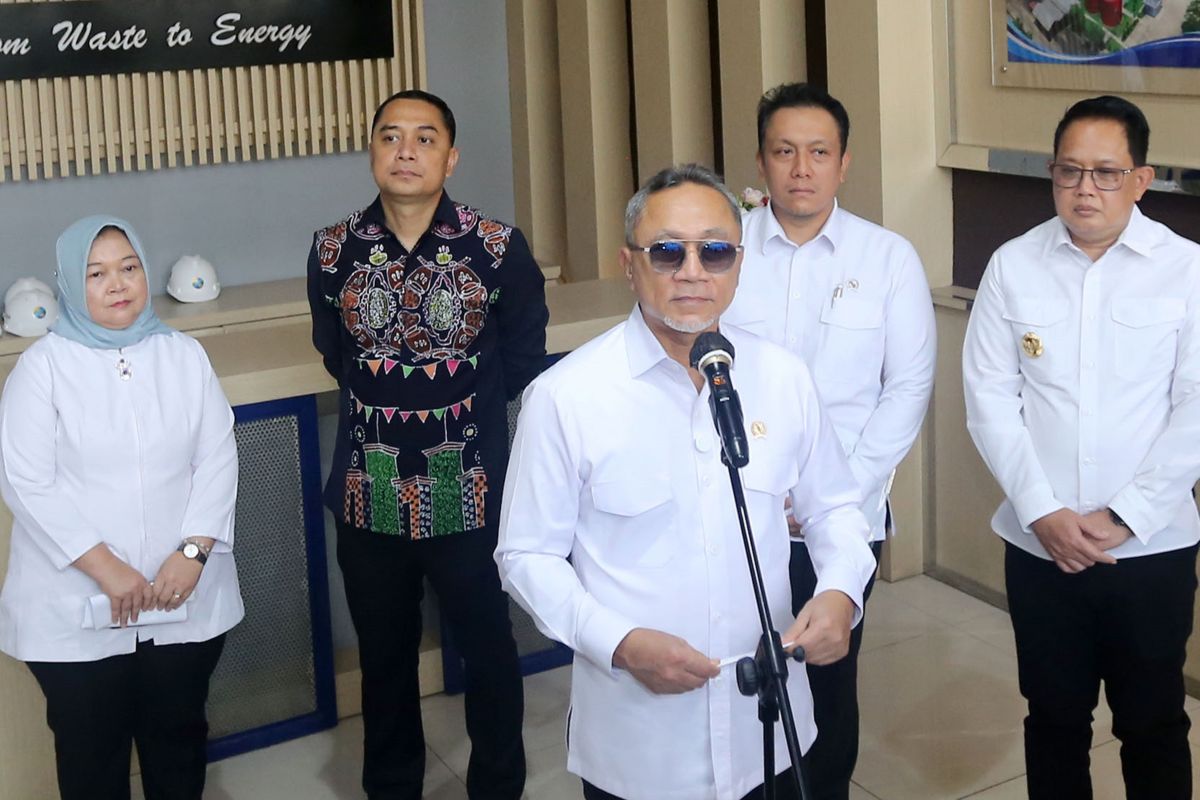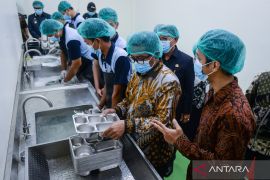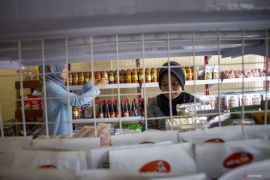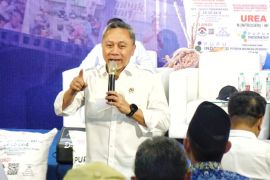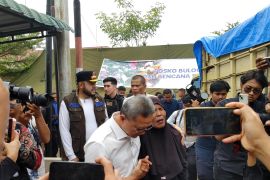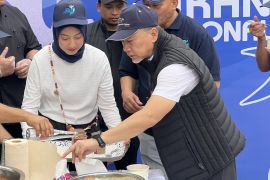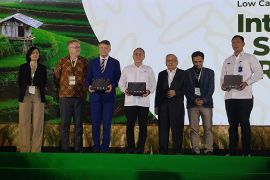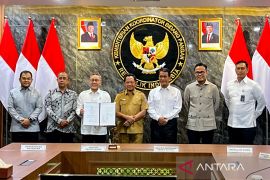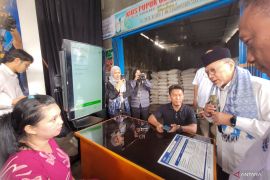"Surabaya has implemented a circular economy, a concept to overcome the waste problem by returning waste generated from consumption to the production process," he explained during his visit to Benowo TPA on Tuesday.
He then called for duplicating the waste management system at Benowo TPA in other regions to support national energy security, in line with the Asta Cita program initiated by President Prabowo Subianto.
He noted that converting waste into electricity could help address the problem of waste in various regions along with population growth.
"With economic and population growth, the amount of waste is also growing. With this waste management system, the city will be clean and pollution can be reduced," he explained.
Meanwhile, Surabaya Mayor Eri Cahyadi said that the waste management process at the Benowo TPA, which uses the same technology as Singapore, has been recognized by the Ministry of Environment and Forestry (KLHK).
"Minister Hasan's visit aims to ensure this waste management system can be duplicated in other regions. The KLHK Ministry also said that waste management should no longer use open dumping but must be technology-based," he added.
Related news: Surabaya can be pilot city for waste-to-energy project: Ministry
He said that the waste management system at Benowo TPA has been quite effective in checking the waste problem in Surabaya, since it produces electrical energy from waste.
"When I first served as a mayor here, the city generated 1,400 tons of waste per day, now it has increased to 1,600 tons per day. This is due to the increase in population from 2.8 million people to 3.2 million people," Cahyadi informed.
"Therefore, this waste management is considered effective in producing electricity and zero waste," he added.
The city has continued to implement the reuse, reduce, recycle, and replace (4R) movement for waste management, starting from equipping each hamlet with a waste bank to sort and process waste in an integrated manner.
"We have a waste bank in every hamlet to sort and process waste. I hope the population's waste can be reduced from 1,600 tons to 1,400 per day," Cahyadi said.
Related news: Govt urges regions to support waste bank operation
Translator: Indra Setiawan, Resinta Sulistiyandari
Editor: Yuni Arisandy Sinaga
Copyright © ANTARA 2025
